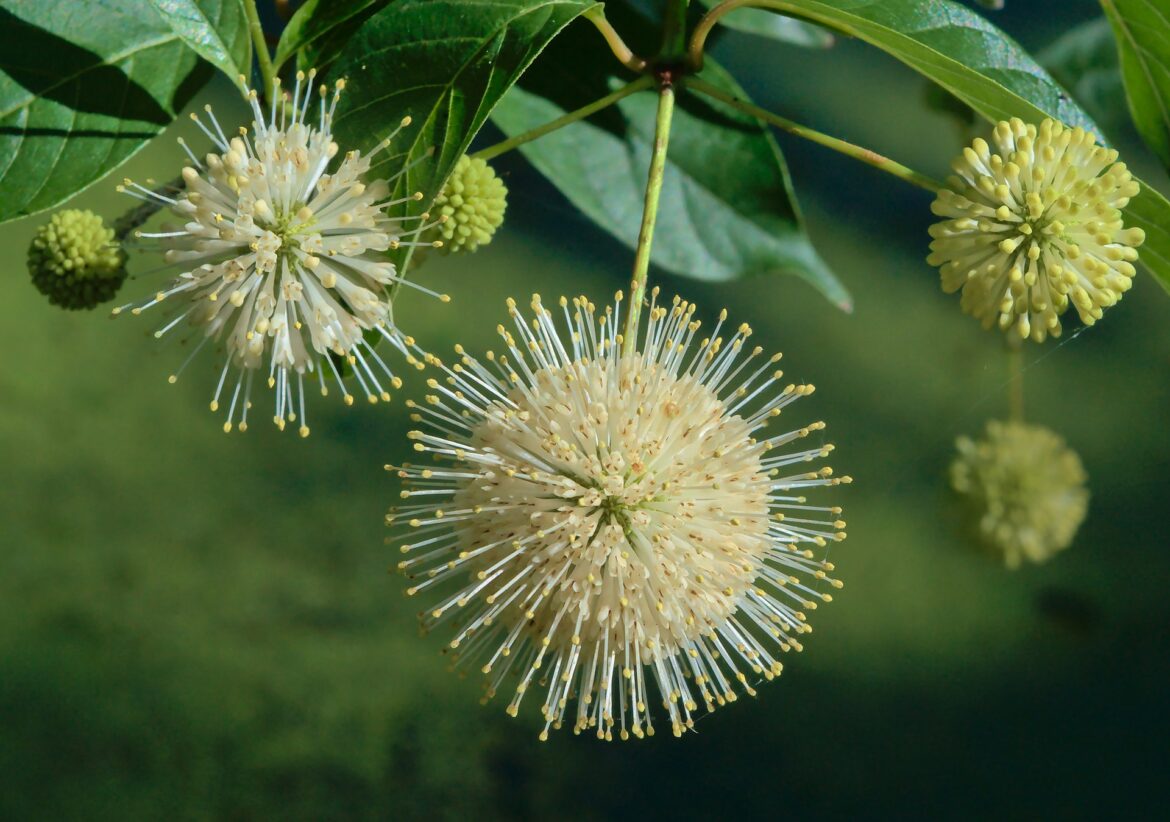
Buttonbush is one of the native species included in the grant from the Pollinator Partnership. Image: The Cosmonaut, Wikimedia Commons, CC BY-SA 4.0.
By McKoy Scribner
In an effort to battle invasive species, Michigan State University is becoming a more welcoming place for bees, butterflies and other native pollinators. Thanks to a grant from Project Wingspan, the university is adding new pollinator gardens on campus.
Matt Bailey, MSU’s landscape services manager, and Lars Brudvig, an associate professor of plant biology, applied for the grant to make the campus more pollinator-friendly.
Project Wingspan is a three-year project through the Pollinator Partnership designed to increase the quality, quantity and connectivity of pollinator habitats throughout the Midwest and Great Lakes region.
Although the grant included no money, MSU received 16 species of Michigan native seed, including black-eyed Susan, buttonbush, foxglove, purple coneflower, milkweed and blazing star wildflower to help reclaim sites as native wildlife habitats.
Bailey says the university is also implementing sustainable maintenance practices.
“Just basically adding more native areas on campus, minimizing some of our mowing operations so that we’re reducing emissions,” he said. “We’re adding more areas for pests and animals and insects to pollinate more things so that we have more flowers on campus.”
Student organizations are also a part of this project.
“We’re trying to add more pollinator areas across campus, working with 10 or more sustainable student groups, so (we’re) always looking for opportunities to engage with them. So I thought it would be a good opportunity to apply for this grant and work with some students on campus,” Bailey said.
The project is a collaborative effort between the College of Natural Science’s Plant Biology Department and the student Fisheries and Wildlife Club, with help from Infrastructure Planning and Facilities Landscape Services.
Landscape Services is working on its fourth and fifth pollinator areas on campus, with monitoring and maintenance to continue over the next few years.
This story is brought to you as part of a partnership between WKAR and Michigan State University’s Knight Center for Environmental Journalism.